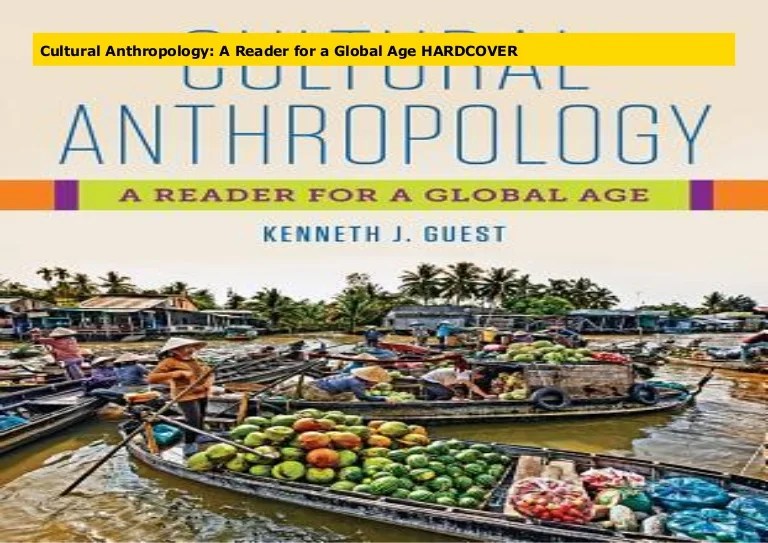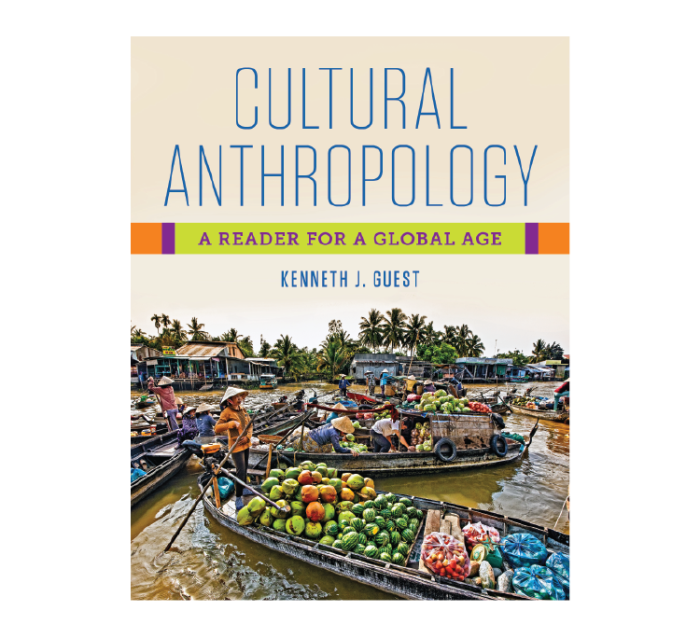Cultural anthropology a reader for a global age pdf – Cultural Anthropology: A Reader for a Global Age PDF offers a comprehensive exploration of cultural anthropology, providing a global perspective on human societies and their diverse cultural practices. This engaging text examines the evolution of cultural anthropology, its key concepts and theories, and its practical applications in various fields.
Delving into the complexities of cultural diversity, globalization, and cultural change, this reader invites readers to critically examine the impact of these forces on societies worldwide. Through real-world examples and case studies, the text highlights the significance of cultural anthropology in understanding and addressing contemporary global challenges.
1. Cultural Anthropology
A Global Perspective

Cultural anthropology is the study of human societies and cultures from a holistic perspective. It examines the beliefs, values, norms, and practices that shape human behavior and interactions within different cultural contexts. Cultural anthropology plays a crucial role in understanding the diversity of human experiences and the interconnectedness of global communities.
As a discipline, cultural anthropology has evolved over time, adapting to changing global realities. In the contemporary world, cultural anthropologists grapple with the complexities of globalization, cultural diversity, and the impact of technology on human societies.
Cultural anthropology has made significant contributions to our understanding of human cultures. Anthropological research has shed light on the ways in which different societies organize their social, political, and economic systems. It has also provided insights into the cultural factors that influence health, education, and development.
2. Key Concepts and Theories in Cultural Anthropology: Cultural Anthropology A Reader For A Global Age Pdf
Cultural anthropology relies on a set of core concepts and theories to understand human cultures. One fundamental concept is culture, which encompasses the shared beliefs, values, norms, and practices of a particular group of people.
Ethnography is a key method in cultural anthropology, involving the long-term immersion of an anthropologist in a specific cultural setting. Through participant observation and other ethnographic techniques, anthropologists gain an in-depth understanding of the everyday lives and cultural practices of the people they study.
Various theoretical approaches have shaped the field of cultural anthropology. Functionalism focuses on the role of cultural practices in maintaining social stability. Structuralism seeks to identify the underlying structures that organize cultural systems. Symbolic anthropology explores the symbolic meanings and interpretations that people give to their cultural practices.
3. Methods and Methodologies in Cultural Anthropology

Cultural anthropologists employ a range of methods to conduct their research. Participant observation is a cornerstone of anthropological fieldwork, allowing researchers to experience firsthand the daily lives and cultural practices of the people they study.
Interviewing is another important method, enabling anthropologists to gather information directly from individuals and gain insights into their perspectives and experiences.
Archival research involves the examination of historical documents, artifacts, and other sources to reconstruct past cultural practices and understand the evolution of cultures over time.
Ethical considerations are paramount in anthropological fieldwork. Researchers must respect the privacy and dignity of the people they study and obtain informed consent before conducting research.
4. Cultural Diversity and Globalization
Cultural diversity refers to the wide range of cultural practices, beliefs, and values that exist around the world. Cultural anthropology plays a vital role in documenting and understanding this diversity, highlighting the unique contributions of different cultures to human civilization.
Globalization has had a profound impact on cultural practices and identities. Increased interconnectedness and technological advancements have facilitated the exchange of ideas and cultural practices across borders, leading to both cultural homogenization and the emergence of new hybrid cultural forms.
Cultural diversity presents challenges and opportunities in a globalized society. It is important to recognize and respect cultural differences while also promoting intercultural understanding and cooperation.
5. Cultural Change and Adaptation

Cultural change is a natural and ongoing process, influenced by various factors such as technological advancements, social movements, and environmental changes.
Cultural adaptation refers to the ways in which cultures change and adapt to new circumstances. Anthropologists study the processes of cultural change and adaptation to understand how cultures evolve and respond to changing environments.
Examples of cultural change and adaptation include the adoption of new technologies, the emergence of new social norms, and the transformation of cultural practices in response to environmental challenges.
6. Applications of Cultural Anthropology
Cultural anthropology has practical applications in various fields, including development, education, and conflict resolution.
In development work, cultural anthropologists provide insights into the cultural factors that influence development initiatives, ensuring that programs are culturally appropriate and effective.
In education, cultural anthropologists contribute to the development of culturally responsive curricula and teaching methods, promoting equity and inclusion for students from diverse backgrounds.
In conflict resolution, cultural anthropologists play a role in mediating conflicts and promoting understanding between different cultural groups.
FAQ Resource
What is the main focus of cultural anthropology?
Cultural anthropology focuses on understanding the diverse cultural practices, beliefs, and values of human societies around the world.
How does cultural anthropology contribute to our understanding of globalization?
Cultural anthropology provides insights into how globalization impacts cultural practices and identities, shaping the interactions between different cultures.
What are some of the key methods used in cultural anthropology?
Cultural anthropologists employ various methods such as participant observation, interviewing, and archival research to collect data and gain a deep understanding of different cultures.